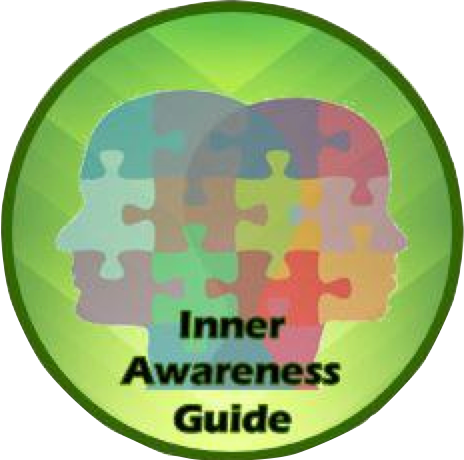IAGuide
INNER AWARENESS GUIDE
INNER AWARENESS GUIDE
Explore, Learn & Understand the
Social & Emotional Elements
of the Self and of others too.
Traci Seltzer
MS Psychology, MEd., MBA
Experienced Contextualism Communication Instructor & Coach





WHAT & WHO
Learning how to effectively communicate, to understand the contextualisms of the self and of others, and to keep interactions from escalating are quite important in today's multicultural, stressful and/or rather intolerant world, especially for ESL instructors, teachers, professors, corporate trainers, and instructors in any field as well as other professions like doctors, lawyers, police officers, and of course, parents.
WHY
HOW
BENEFITS!
While learning about contextualism and communication through different media venues, perhaps you will also learn about your own contextualism and develop your own self-awareness.
Self-awareness includes but is not limited to your level, ability or usage of (or lack thereof):
Learning how to effectively communicate, to understand the contextualisms of the self and of others, and to keep interactions from escalating are quite important in today's multicultural, stressful and/or rather intolerant world, especially for ESL instructors, teachers, professors, corporate trainers, and instructors in any field as well as other professions like doctors, lawyers, police officers, and of course, parents.
WHY
- How often do we hear ourselves, family members, co-workers, friends and/or professionals say “You just don’t understand!!" or "You aren’t listening to me! or You're so incentive!" or "You should have thought first!" Such words with the accompanying intonation indicate that there is ineffective communication and/or very little understanding of each other, the inner self and the situation. Disagreements and negative interactions are inevitable but they do not need to escalate into full-scale arguments or conflicts.
- As an instructor, corporate trainer or business manager, you may see blank looks on the faces of those you are teaching or training, or those you are asking to complete certain tasks. This can also occur when a parent teaches a child how to make a sandwich. We often teach even when we don't realize we are teaching because we usually think of teaching and learning as occurring in a classroom or academic setting. This isn't reality. We teach and learn from each other, both good and bad things, from both good and bad teaching instruction and/or examples.
- Behavior issues in any venue are also an indication of miscommunication and "mis-interaction" (yes, I created that word!); this includes the criminal justice field. I often use news stories that involve people, the police and the judicial system because these entities exist because of people's bad choices, often from unpleasant interactions with others as well as inadequate intrapersonal skills.
HOW
- I use media in my self-paced courses and in individual lessons to teach people (instructors, managers, trainers, anyone) about contextualism, communication, turbulent interaction English & skills; and self-awareness. I may ask you to watch a TV show or movie and discuss the situation between the characters and what or how they could have prevented a negative situation from happening or how a misunderstanding could have been avoided.
- I may also ask you to compare and contrast the social skills and contextualisms of different characters from different TV shows and/or movies. The TV shows and movies may also be from different eras, generations, cultures and/or subcultures, which also teach you to understand the elements of contextualism. Music videos, video clips, short stories and/or news stories may also be used as lesson material. Entertainment media tasks also include many expressions which will increase your English knowledge and understanding.
BENEFITS!
While learning about contextualism and communication through different media venues, perhaps you will also learn about your own contextualism and develop your own self-awareness.
Self-awareness includes but is not limited to your level, ability or usage of (or lack thereof):
- emotional Intelligence
- communication skills
- contextualism of self and others
- interpersonal and intrapersonal skills
- metacognition level
- executive function
- approachability
- coping & resolution skills
- conflict resolution skills
- empathy and sympathy
- eclecticism
- resiliency
Modals, Hypotheticals & Conditionals (MHCs)
are extremely important and necessary in daily business, business meetings, strategic planning and interviewing, as well as in the personal life. They are used in problem solving, brainstorming, strategic planning, conflict resolution, and successful interactions with others in any venue. Depending on intonation and word choices, they can also be used as insults and accusations.
Written Communication
poses a specific challenge since the reader does not hear the intonations of the sender’s voice unless the reader knows the sender very well to know the intonations the sender would use. Since intonation is not conveyed in written communication, choosing the best format, best word choices (especially the social and connotative meanings) and logical flow for your target audience are of the upmost importance as is the target's contextualism. An example of this is the effectiveness of advertising and marketing as well as business and personal emails and IMs.
are extremely important and necessary in daily business, business meetings, strategic planning and interviewing, as well as in the personal life. They are used in problem solving, brainstorming, strategic planning, conflict resolution, and successful interactions with others in any venue. Depending on intonation and word choices, they can also be used as insults and accusations.
Written Communication
poses a specific challenge since the reader does not hear the intonations of the sender’s voice unless the reader knows the sender very well to know the intonations the sender would use. Since intonation is not conveyed in written communication, choosing the best format, best word choices (especially the social and connotative meanings) and logical flow for your target audience are of the upmost importance as is the target's contextualism. An example of this is the effectiveness of advertising and marketing as well as business and personal emails and IMs.
Get in Touch Info
(-5 or -6 UTC/GMT depending on the time of year)
Tennessee, USA
Telegram or WhatsApp

© All Rights Reserved & Copyright by
Self-Enhancement by T. Seltzer
D/B/A InnerAwarenessGuide
Copyright 2024

